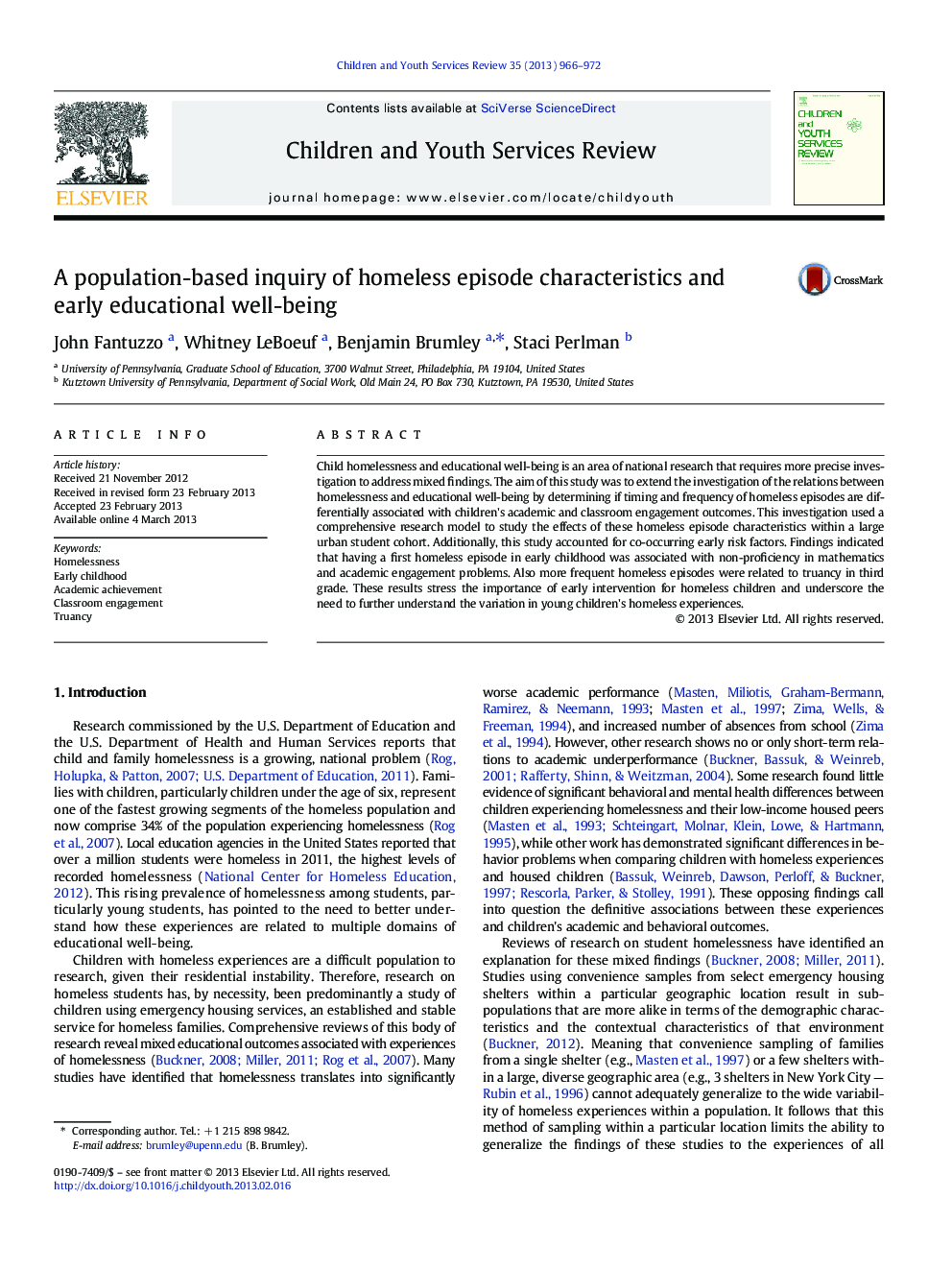| Article ID | Journal | Published Year | Pages | File Type |
|---|---|---|---|---|
| 346378 | Children and Youth Services Review | 2013 | 7 Pages |
•This study examined a population of homeless children with integrated public data.•Earlier homelessness was related to math non-proficiency and poor engagement.•Higher frequency of homeless episodes was associated with third-grade truancy.•Findings underscore the need for integrated public services and early intervention.•Future research should compare definitions of homeless experiences.
Child homelessness and educational well-being is an area of national research that requires more precise investigation to address mixed findings. The aim of this study was to extend the investigation of the relations between homelessness and educational well-being by determining if timing and frequency of homeless episodes are differentially associated with children's academic and classroom engagement outcomes. This investigation used a comprehensive research model to study the effects of these homeless episode characteristics within a large urban student cohort. Additionally, this study accounted for co-occurring early risk factors. Findings indicated that having a first homeless episode in early childhood was associated with non-proficiency in mathematics and academic engagement problems. Also more frequent homeless episodes were related to truancy in third grade. These results stress the importance of early intervention for homeless children and underscore the need to further understand the variation in young children's homeless experiences.
